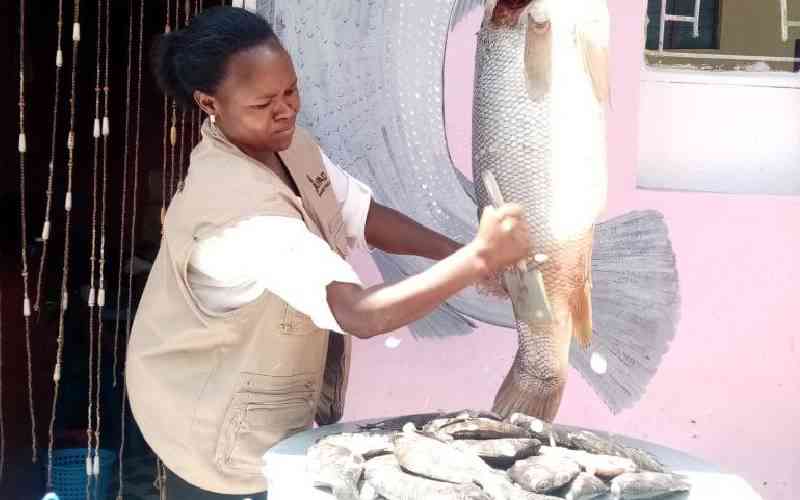×
The Standard e-Paper
Fearless, Trusted News

As fish farmers in Central Kenya continue to embrace aquaculture, local consumption of the hitherto unpopular delicacy has gone up as more people diversify their diets.
Health concerns about lifestyle diseases such as hypertension, obesity, and diabetes, have created a demand for alternative sources of nutrients, and fish eateries have started thriving in various towns across the region.